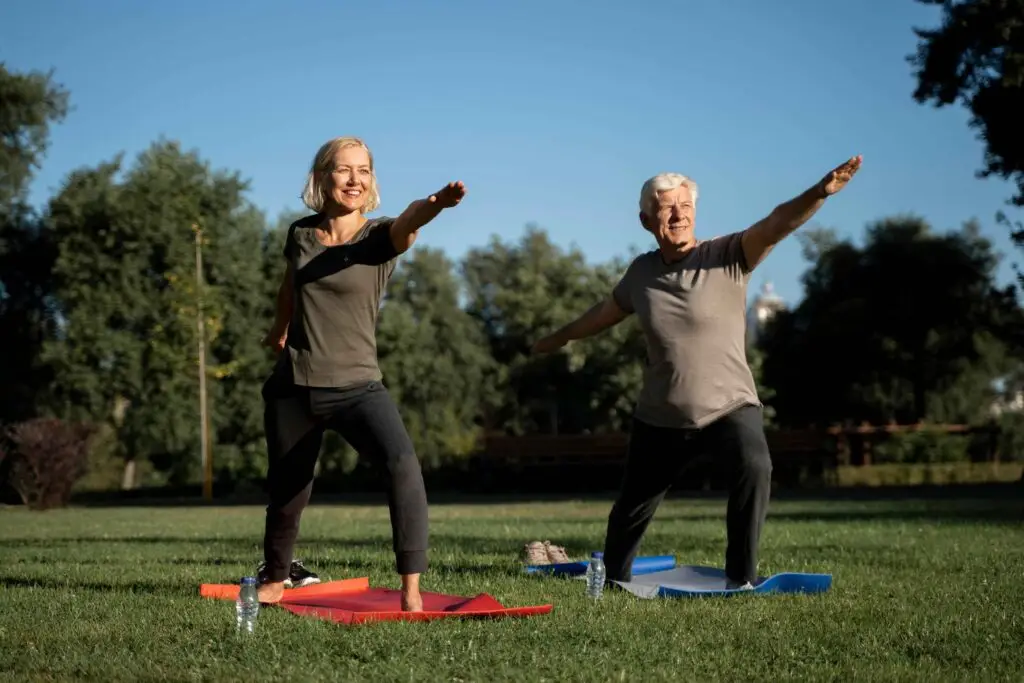Sleep. That elusive, precious commodity seems to slip further away as we age.
For many over 60, a good night’s rest can feel like a distant memory. But fear not, fellow seniors! While age-related changes can indeed impact our sleep patterns, it’s not a foregone conclusion that you’ll be tossing and turning all night long.
Understanding the Shift: Why Sleep Changes with Age
As we get older, our bodies go through a natural decline. This includes changes in our sleep-wake cycle, often referred to as our circadian rhythm.
- Shifting Sleep Patterns: You might find yourself feeling tired earlier in the evening and waking up earlier in the morning. This is a common occurrence as our internal clock tends to shift forward with age.
- Increased Sleep Fragmentation: Age can lead to more frequent awakenings throughout the night, even if you don’t fully rouse.4 These interruptions can disrupt your sleep cycle and leave you feeling unrefreshed.
- Medical Conditions: Many chronic health conditions that become more prevalent with age, such as arthritis, heart disease, and sleep apnea, can significantly interfere with sleep.
- Lorem Ipsum Lorem Ipsum Lorem Ipsum Lorem Ipsum
Tips for Reclaiming Your Rest:
While you can’t entirely reverse the effects of aging on sleep, you can certainly take steps to improve your sleep quality. Here are some strategies to consider:
- Establish a Consistent Sleep Schedule:
- Go to bed and wake up around the same time each day, even on weekends.6 This helps regulate your body’s natural sleep-wake cycle.
- Create a relaxing bedtime routine. This could include a warm bath, reading a book, or listening to calming music.
- Dim the lights and avoid screens an hour or two before bed. The blue light emitted from electronic devices can interfere with melatonin production, a hormone that regulates sleep.
- Optimize Your Sleep Environment:
- Make sure your bedroom is dark, quiet, and cool. Consider using blackout curtains, earplugs, or a white noise machine to minimize distractions.
- Invest in a comfortable mattress and pillows.
- Keep your bedroom for sleep and sex only. Avoid working, eating, or watching TV in bed.
- Prioritize Physical Activity:
- Regular exercise can significantly improve sleep quality. Aim for at least 30 minutes of moderate-intensity exercise most days of the week.
- Avoid strenuous exercise close to bedtime.
- Watch Your Diet:
- Avoid large meals and caffeine in the evening.
- Limit alcohol consumption, as it can disrupt sleep later in the night.
- Consider a light snack before bed, such as a small bowl of cereal or a glass of warm milk.
- Address Underlying Medical Conditions:
- If you suspect a medical condition is interfering with your sleep, consult your doctor.
- Discuss potential treatment options, such as medication or therapy.
- Relaxation Techniques:
- Practice relaxation techniques such as deep breathing, meditation, or progressive muscle relaxation.1415 These can help calm your mind and16 body before sleep.
- Rule Out Sleep Disorders:
- If you continue to experience significant sleep problems, talk to your doctor about potential sleep disorders such as insomnia or sleep apnea.
When to Seek Professional Help:
If you’ve tried these tips and are still struggling with sleep, don’t hesitate to consult a healthcare professional. They can help you identify any underlying medical conditions and recommend appropriate treatment options.
Remember: Improving sleep quality takes time and patience. Don’t get discouraged if you don’t see results immediately.
Disclaimer: This article is for informational purposes only and should not be considered medical advice. Always consult with a healthcare professional17 for any health concerns.
By implementing these strategies and making a conscious effort to prioritize sleep, you can significantly improve your quality of life as you age. Sweet dreams!
Other Articles

3 Medicare Changes to Know for 2026 Before You Pick a Plan
Introduction: A New Chapter in Medicare Savings Each fall, millions of older Americans review their Medicare options during Open Enrollment (Oct 15 – Dec 7). But this year’s decisions come
📘 Book Review: How to Retire with Enough Money By Teresa Ghilarducci
Teresa Ghilarducci’s How to Retire with Enough Money is a straight-talking, no-nonsense guide designed for people who may feel like they’re behind on retirement planning. Focused on clarity, realism, and

Wine Safety Tips for Older Adults: Medications, Health & More
A glass of wine can be a wonderful way to relax, socialize, or celebrate life’s moments. But as we age, it’s important to know how wine—and alcohol in general—can interact

Book Review: How to Make Your Money Last by Jane Bryant Quinn
Reaching your 60s often brings a mix of emotions when it comes to money. You’ve worked hard, you’ve saved what you could, and now you’re looking ahead at retirement years

Safe Movement at Home: Simple Adjustments That Make a Big Difference
Your home should make life easier — not more difficult. But as time passes, certain parts of a house can become less friendly to balance and movement.A rug that once

Ramelteon: A Safer, Non-Habit Forming Sleep Aid for Older Adults
Finding restful sleep can become surprisingly difficult later in life. Many older adults lie awake longer, wake up more often, or struggle to fall back asleep after a trip to





